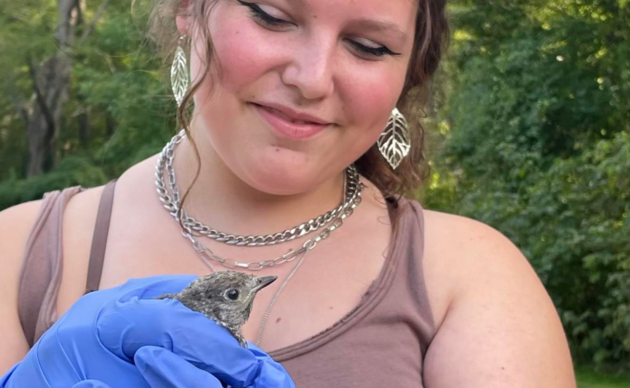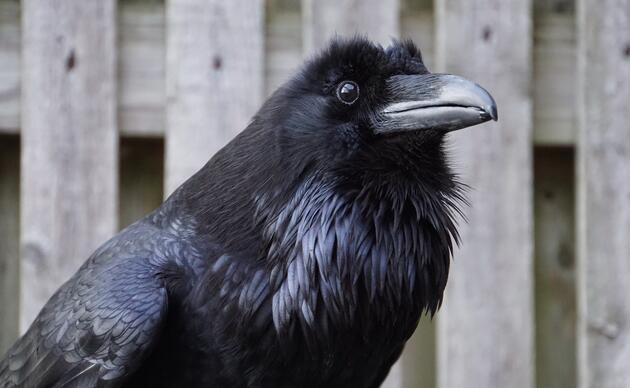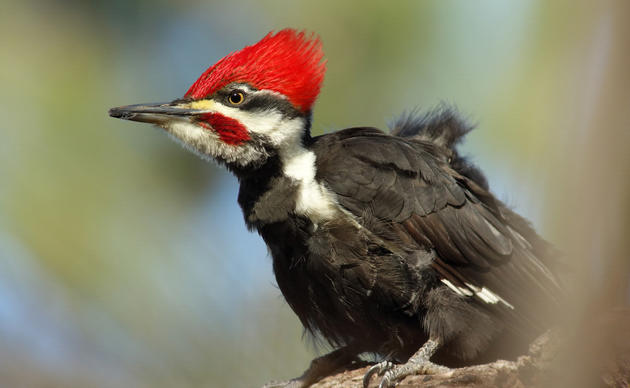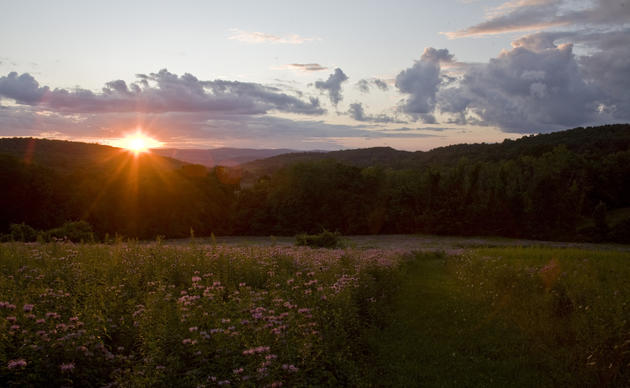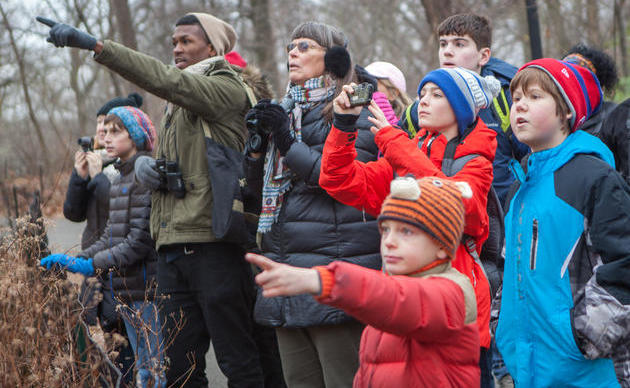Brought to Sharon Audubon Center: September 26, 2004
History: Paloma is not a wild dove, but the type of dove used in magic shows and commonly kept as pets. This type of dove has been bred for so long and kept in captivity, it is practically a domesticated animal. Paloma was most likely released at some type of event, such as a wedding or funeral, and, unfortunately, Ringneck Doves do not have a well developed homing instinct. As a result, she could not find her way home, did not know what to eat or where to find food and was not afraid of potential predators because she was hand-raised. She was brought to Sharon Audubon Center's Wildlife Rehabilitation Clinic with major bruising on both wings, missing tail feathers, and a scalped head. She has fully recovered from her injuries and now resides in an aviary in the exhibit room. You can often hear her sweet, gentle "laugh" when you visit the Center.
Ring-necked Dove (Streptopelia risoria)
Average Height: 12 inches
Weight: 5.5 oz
Wingspan: 19 inches
Life Span: 15 - 25 years
Description: Also known as the Barbary or Laughing Dove, Ringneck Doves can usually be identified by the distinctive black ring around the neck. Paloma, Sharon Audubon Center's Resident Ringneck Dove, is an Albino and therefore has no coloring. Until the 1950s only two colors of Ringneck Doves were available in the United States, a blond or fawn color and white. Today the Ringneck Dove comes in over 40 color variations.
Call: Ringneck Doves have two common calls, the gentle cooing (similar to the Mourning Dove) and a distinctive “laughing.”
Range: The Ringneck Dove is only found in captivity, but is believed to be a descendant of the African Ring Dove.
Habitat: Only in captivity
Diet: Ringneck Doves enjoy a wide variety of seeds and grains as well as some greens.
How you can help, right now
Learn & Explore
Where birds thrive, people prosper. Help us transform local communities into places where birds flourish. Learn what you can do to nurture wildlife, nature, and conservation in Connecticut.
Support Our Work
Through land stewardship, science, education, and advocacy, we work to preserve habitat and protect bird species that are of state, national, and global concern. Your gift makes a difference.
Join Our Family
When you become a member of Sharon Audubon Center, you are protecting critical woodlands and a natural heritage for generations to come. Help us do great things.

